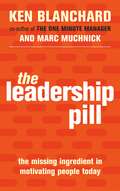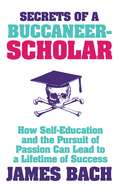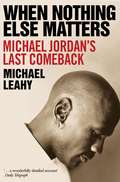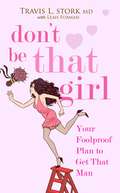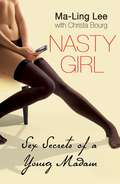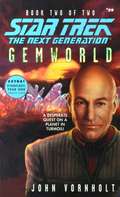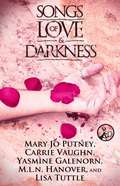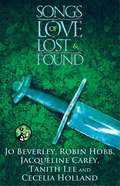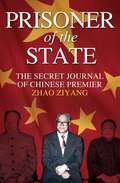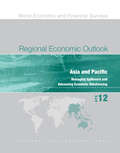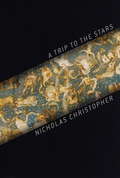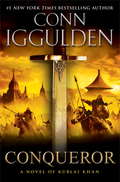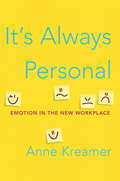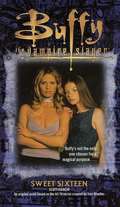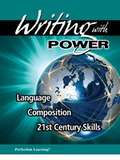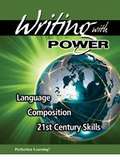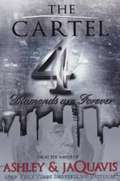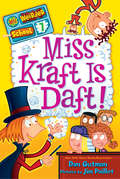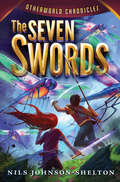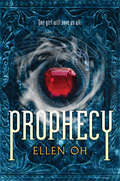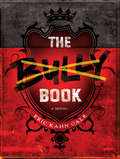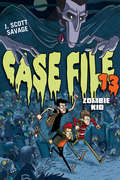- Table View
- List View
The Leadership Pill
by Ken Blanchard Marc MuchnickNow can you become a more successful manager, a stronger team leader, and a motivator who gets the best results from a group? Ken Blanchard and Marc Muchnick'sThe Leadership Pillprovides the answer. In the bestselling tradition ofWhale Done!andThe One Minute Manager,their entertaining and inspiring new book is a parable about the competition between two leaders with totally different management styles -- a story that reveals the ingredients of truly effective leadership. Consider this tantalizing possibility: What if there were a pill that could actually stimulate the natural powers of the mind and body to provide leadership? In the story, an amazing new pill heightens one leader's powers, but contains the wrong ingredients, stimulating him in an obsessive and shortsighted direction with disastrous results. In contrast, the Effective Leader, working without a pill, proclaims that "only through sustainability can our teams remain motivated and successful. " An inspiring and supportive leader, he supplies the right ingredients, earning his team's respect and trust with a blend of integrity, partnership, and affirmation. The hard-won result is a highly motivated team producing consistent top performance and genuine success. Ultimately it is recognized that "leadership for a lifetime" is much easier to digest than a pill for leaders looking for a quick fix. Destined to be a transforming experience for countless readers,The Leadership Pillshows business managers at any level how to apply the right techniques for getting both results and the commitment of their people, even when the pressure to perform is high.
Secrets of a Buccaneer-Scholar
by James Marcus BachThis unique and insightful book challenges our prevailing and often fallacious attitudes about schooling. In today's volatile job market, ideas are more important than training, innovation is more important than credentials; traditional schooling may no longer be necessary or even useful. The ability to educate oneself--to learn how to learn--is crucial. In Secrets of a Buccaneer-Scholar, James Bach demonstrates how to nurture one's natural curiosities and passions through the whimsical learning process he calls "buccaneering"--demonstrating that those who understand this fundamental principle will come to dominate this new world.ets of a Buccaneer-Scholar: a groundbreaking book that shows how anyone can create their own education on their own terms. It is nurturing our individual curiosities and relishing the learning process that will lead anyone -- from children struggling in school to professionals looking to jumpstart their careers -- to success. In his unique pithy and anecdotal style, and combining his personal story with proven methodologies, James describes the relentless, whimsical, low-intensity learning process he calls "buccaneering." Secrets of a Buccaneer-Scholar demonstrates that it is the people who chart their own course, who never stop learning, who will come to dominate this new world.
When Nothing Else Matters
by Michael LeahyAs one of the greatest, most celebrated athletes in history, Michael Jordan conquered professional basketball as no one had before. Powered by a potent mix of charisma, nearly superhuman abilities, and a ferocious need to dominate the game, he won six NBA championships with the Chicago Bulls and captured every basketball award and accolade conceivable before retiring and taking a top executive post with the Washington Wizards. But retirement didn't suit the man who was once king, and at the advanced age of thirty-eight Michael Jordan set out to reclaim the court that had been his dominion. When Nothing Else Matters is the definitive account of Jordan's equally spectacular and disastrous return to basketball. Washington Post writer Michael Leahy reveals the striking contrast between the public Jordan and the man whose personal style alienated teammates and the Washington owner who ousted him.
Don’t Be That Girl
by Leah Furman Travis L. StorkDon't worry. This is notthatbook. Travis Stork, the handsome and charismatic star ofThe Bachelor: Paris, has chalked up more dating experience than most men could claim in a lifetime. As an ER doctor, he's also an expert on the psychological and physiological factors involved in mental and emotional well-being. InDon't Be That Girl, he combines his personal experience and professional expertise to help you demystify the self-defeating behaviors that characterizethatgirl -- behaviors that unfortunately, even if unintentionally, prevent many women from getting the most from their lives and relationships. Don't Be That Girlcuts to the heart of what makes a woman cross intothatgirl territory and the red flags that tip guys off to the possibility that, yikes, they may be datingthatgirl. So who isthatgirl, exactly? She defies a simple definition. She may be the chameleon who turns into a completely different person the second a guy walks into the room. She could be the girl with the ironclad agenda that she's held to dearly since her first encounter with Modern Bride (and she'll do anything to make sure her plan materializes). Or she's the consummate "yes" girl who is always going along with his every wish. If she's not saying yes, she might very well be a drama queen who is always saying no because she can't seem to live without conflict. Then again, she might not be dramatic at all, just miserable inside, wearing her anger and bitterness as a badge of honor. In short, she's the girl who's trying fruitlessly to be someone she's not -- who's falling victim to the common pitfalls and patterns that lead tothatgirl behavior -- rather than believing in herself, following her passions, and maintaining healthy priorities. ButDon't Be That Girlisn't all cautionary tales and bad news. Often, the same traits that make a woman that girl are the traits that, at their core, are her biggest strengths -- if she only knew how to refocus them. By drawing attention to and celebrating these positive attributes, Dr. Stork reveals how to cultivate and take advantage of them in ways that will lead you to the confidence and happiness that you deserve. Whether you are in a relationship, hopelessly searching, or somewhere in between, this book will arm you with practical insights so you will never again have to ask yourself,Is it me or is it him?
The Education of a Very Young Madam
by Ma-Ling Lee Christa BourgFull of juicy details about what really goes on behind the bedroom door, The Education of a Very Young Madam is a provocative exposé of the newest developments in the world's oldest profession. A stripper at age fifteen, involved with majorleague gang members before she was twenty, and a madam raking in over $20,000 a day only a few years later, Ma-Ling Lee has a tale to tell about life. The Education of a Very Young Madam is the compulsively readable, fast-paced story of how Ma-Ling Lee went from living in a comfortable Connecticut suburb to founding a lucrative but illegal "escort service." Korean born and adopted by an American family, Ma-Ling began her career in the sex business at the age of thirteen. "Taken in" by strippers, pimps, and prostitutes, she soon became an expert at negotiating the hard-and-fast ways of life on the streets. Ma-Ling's natural knack for marketing and managing a business led her to open her first brothel at the age of sixteen. After the police shut her down, she knew it was time to take advantage of the opportunities afforded by the anonymity of the Internet. She bought her first Internet mailing list, set up an offshore server, and targeted a huge middleclass clientele. And business thrived. In her own frank and candid voice, Ma-Ling describes the difficulties -- and the economic advantages -- of running an illegal business. From clients' outrageous and often hilarious fetishes to the hardships of living off the grid to the heartbreak of watching friends get destroyed by drug addiction, Ma-Ling refuses to shy away from the truth of what the prostitution business has become. The madam explains how technology has not only revolutionized the sex industry but also regulated business by ensuring quality, safety, and efficiency. The business has never been better.
Gemworld: Book Two Of Two
by John VornholtOnce one of the Federation's greatest marvels, the planet of Gemworld now faces total destruction, unless the vast network of force fields holding it's atmosphere and his crew must embark on a hazardous trek across the dying planet to unite it's six inhabitant civilizations
Songs of Love and Darkness
by Lisa Tuttle Mary Jo Putney Yasmine Galenorn Carrie Vaughn M.l.n. HanoverFeaturing stories by Mary Jo Putney, Carrie Vaughn, Yasmine Galenorn, M.L.N. Hanover, and Lisa Tuttle these contemporary tales of ill-fated love, originally published in the anthology Songs of Love and Death (edited by George R.R. Martin and Gardner Dozois) explore romance in five wildly creative settings--from the hidden supernatural side of New York City to werewolf-occupied West Texas.
Songs of Love Lost and Found
by Robin Hobb Tanith Lee Jo Beverley Jacqueline Carey Cecilia HollandFeaturing five deliciously romantic stories set in historical and high fantasy worlds, this exclusive eBook set is the perfect gift for any romance reader.Featuring stories by Jo Beverley, Cecelia Holland, Robin Hobb, Jacqueline Carey, and Tanith Lee, this collection of five wonderful romantic stories from five wickedly creative authors includes beautiful maids and clever minstrels, orphans destined for greatness and spies thirsting for revenge, and a pair of lovers who must struggle against the forces of magic and fate. Originally published in the anthology Songs of Love and Death (edited by George R.R. Martin and Gardner Dozois), these compelling stories are specially packaged in one eBook set at a great price.
Prisoner of the State
by Bao Pu Renee Chiang Adi IgnatiusHow often can you peek behind the curtains of one of the most secretive governments in the world? Prisoner of the State is the first book to give readers a front row seat to the inner workings of China. It is the story of Premier Zhao Ziyang, the man who brought liberal change to that nation and who, at the height of the Tiananmen Square protests in 1989, tried to stop the massacre and was dethroned for his efforts. When China's army moved in, killing hundreds of students and other demonstrators, Zhao was placed under house arrest at his home in Beijing. China's most promising advocate for change had been disgraced, along with the policies he stood for. The Premier spent the last 16 years of his life, up until his death in 2005, in seclusion. China scholars often lamented that Zhao never had his final say. As it turns out, Zhao did produce a memoir, in complete secrecy. He methodically recorded his thoughts and recollections on what had happened behind the scenes during many of modern China's most critical moments. The tapes he produced were smuggled out of the country and form the basis for Prisoner of the State. In this audio journal, Zhao provides intimate details about the Tiananmen crackdown; he describes the ploys and double-crosses China's top leaders use to gain advantage over one another; and he talks of the necessity for China to adopt democracy in order to achieve long-term stability. A moving and riveting memoir, Zhao's voice has the moral power to make China sit up and listen.
Regional Economic Outlook, April 2012: Asia and Pacific - Managing Spillovers and Advancing Economic Rebalancing
by International Monetary FundBarring the realization of downside risks to the global economy, growth in the Asia and the Pacific region is expected to gain momentum over the course of 2012, according to this report, and now projected at 6 percent in 2012, rising to about 6½percent in 2013. Stronger economic and policy fundamentals have helped buffer the region's economies against the global financial crisis, by limiting adverse financial market spillovers and ameliorating the impact of deleveraging by European banks, but a sharp fall in exports to advanced economies and a reversal of foreign capital flows would have a severe impact on the region. the region's policymakers now face the difficult task of calibrating the amount of insurance needed to support stable, noninflationary growth. Some Asian and Pacific economies can afford to lengthen the pause in the normalization of their macroeconomic policies that was initiated when the global recovery stalled late in 2011;others may need a faster return to more neutral policy stances. Similarly, the pace of fiscal consolidation should be calibrated to country-specific circumstances. Additional chapters in the report discuss whether China is rebalancing and the particular challenges facing Asian low-income and small island economies.
A Trip to the Stars
by Nicholas ChristopherAt a Manhattan planetarium in 1965, ten-year-old Enzo and his young aunt, Mala, are separated, an event that profoundly alters the rest of their lives. In an epic tale of love and destiny, A Trip to the Stars charts their paths over the next fifteen years as they search for each other and, in the process, discover themselves.As Enzo and Mala cross continents and seas on their separate journeys, they encounter a dizzying array of people: an arachnologist in New Orleans, an asteroid specialist, a wounded B-52 navigator in Vietnam, a professional mind reader, a maverick NASA astronomer, and countless others. All of them are searching for things they have lost -- loved ones, opportunities, enlightenment. Through them Mala and Enzo discover a world steeped in mystery, romance, and intellectual adventure.A Trip to the Stars is both a love story and a coming-of-age story that shows us what happens when we lose what matters most. Fusing imagination and suspense with remarkable narrative skill, Nicholas Christopher builds a story of tremendous scope that lingers in detail and sensation long after the last page has been turned.
Conqueror: A Novel of Kublai Khan (Conqueror #5)
by Conn IgguldenIntrigue and treachery roil the vast Mongol nation as the heirs of Genghis Khan fight for control of his unprecedented empire--and of his mighty armies. History will turn on the outcome of their struggle. But only one man, dismissed by all the others, will boldly rise to the challenge with the courage and vision to forge the future, and with the strength to be called . . . CONQUEROR The novels of Conn Iggulden bring the past to thrilling life, from ancient Rome to thirteenth-century Asia, Europe, and the Middle East. Now he delivers the spectacular story of the rise of Genghis Khan's grandson, a man destined to become one of the most remarkable rulers who ever lived--the legendary Kublai Khan. A succession of ruthless leaders has seized power in the wake of the great Khan's death--all descendants of Genghis, but none with the indomitable character that led a people to triumph. One grandson, Guyuk, decadent and vicious, seeks to consolidate his position through bribery and murder, pitting powerful factions against one another and straining the loyalties of the tribes to the breaking point. Next comes his cousin, Mongke, who eliminates all possible opposition with breathtaking brutality and dispatches his younger brothers Kublai and Hulegu to far-flung territories, to test their mettle and their allegiance. Hulegu displays his barbarity with the savage destruction of Baghdad and his clash with the Khan's age-old enemies, the cult of assassins, who will strike deep into the heart of the nation. But it is Kublai--refined and scholarly, always considered too thoughtful to take power--who will devise new ways of warfare and conquest as he builds the dream city of Xanadu and pursues the ultimate prize: the ancient empire of Sung China. His gifts will serve him well when an epic civil war breaks out among brothers, the outcome of which will literally change the world. Brilliantly researched and imagined, unforgettably told, Conqueror is a magnificent achievement from an enthralling writer at the peak of his powers, a must read for all lovers of history and storytelling on the grand scale.From the Hardcover edition.
It's Always Personal: Emotion in the New Workplace
by Anne KreamerHow often have we heard "It's nothing against you, it's not personal--it's just business"? But in fact, at work it's never just business--it's always personal. In this groundbreaking look at what's really going on from 9 to 5--the crying, yelling, and bullying, as well as the friendship and laughter borne of creative collaboration--journalist and former corporate executive Anne Kreamer shows us how to get rational about our emotions, and provides the necessary new tools to flourish in an emotionally charged workplace. With women now the majority of the workforce and the lines between office and personal life blurring as never before, the dynamics of work have shifted profoundly. It's Always Personal combines the latest information on the intricacies of the human brain, candid stories from employees, and the surprising results of two new national surveys, reported here for the first time, which reached out to workers from all walks of life about their emotions on the job. Both timely and crucial, It's Always Personal also reveals * a neurological understanding of the six main emotional flashpoints: anger, fear, anxiety, empathy, joy, and crying * an exploration of why we as a society self-defeatingly regard displays of emotion in the workplace as shameful, and how the different emotional rules applied to men and women affect our modern notions of gender equality * evidence that suppressing emotions can actually have a negative impact on companies' bottom lines * a step-by-step guide for identifying your emotional type: Spouter, Accepter, Believer, or Solver, with appropriate tactics for dealing with that style in a complex work environment * Emotion Management Toolkits that provide the means to cope with specific emotionally challenging situations. An innovative study of gender, emotion, and power, It's Always Personal is an essential companion for everyone--managers and employees alike--navigating the often confusing and challenging realities of the contemporary workplace.
Harcourt Horizons: United States History from Civil War to Present
by Linda Kerrigan Salvucci Michael J. Berson Thomas M. Mcgowan Robert P. Green Jr.The textbook is divided into seven units; each unit has a Unit Preview that gives facts about important events. The Preview also shows where and when those events took place. Each unit is divided into chapters, and each chapter is divided into lessons. Each unit begins with a song, poem, story, or other special reading selection.
Ecco! Uno Textbook
by Michael Sedunary Nancy Posterino Sophie Kearns Marisa Tarascio-SpillerNIMAC-sourced textbook
Sweet Sixteen (Buffy the Vampire Slayer)
by Scott CiencinBuffy's younger sister, Dawn, knows how it feels to be different. So when she overhears her classmates teasing a new girl, Arianna, she steps in, and the two become friends.
Writing with Power: Language Composition 21st Century Skills [Grade 12]
by Joyce SennNIMAC-sourced textbook
Writing with Power: Language Composition 21st Century Skills [Grade 11]
by Joyce SennNIMAC-sourced textbook
The Cartel 4: Diamonds Are Forever
by Jaquavis AshleyThe Diamond family have survived murder, deceit and betrayal. Through it all, they're still standing tall and a new era has begun. After surviving a failed attempted on her life, Breeze has moved into the queen's position by Zyir's side. Zyir has taken over the empire and locked down Miami's streets. Young Carter has retired and moved away from the madness - that is, until he gets an unexpected visitor at his home. This person shakes up the whole family, causing chaos that threatens to bring down the Cartel for good.
Miss Kraft Is Daft! (My Weirder School #7)
by Dan GutmanMy Weirder School weirder than ever! Oh no! Mr. Granite is sick. A. J. and the gang will have a substitute teacher all week. Yay! But Miss Kraft is weird. She wears a clown costume and uses hand puppets to talk. She likes to do magic tricks. And she's happy all the time. What is her problem?
Otherworld Chronicles #2: The Seven Swords
by Nils Johnson-SheltonAcross both worlds are seven legendary blades. Some have been uncovered, Some forgotten, Others secreted away. Very soon all must be united. Spending the summer fighting dragons, rescuing wizards, and leaping through portals into the Otherworld was only the beginning for Artie and Kay Kingfisher. The two worlds remain divided, Merlin is missing, and worst of all, Qwon Onakea, their kidnapped friend, may be lost to the Otherworld forever. It seems the only way to save both worlds—and to save his friends—is for Artie to claim his throne as King Arthur reborn. To do this, Artie must gather his knights so they can venture forth and recover each of the Seven Swords. Finding them all is Artie's only hope for victory. But all the video games in the world haven't prepared Artie for the battles to come against giants, dragons, ogres, and sorcerers. Nor is he ready for the unexpected threat of the Peace Sword, a mysterious weapon used by the treacherous Mordred to kill the original King Arthur more than a thousand years ago. . . .
Prophecy
by Ellen OhThe greatest warrior in all of the Seven Kingdoms . . . is a girl with yellow eyes. Kira's the only female in the king's army, and she's also the prince's bodyguard. She's a demon slayer and an outcast, hated by nearly everyone in her home city of Hansong. And, she's their only hope. . . . Murdered kings and discovered traitors point to a demon invasion, sending Kira on the run with the young prince. He may be the savior predicted in the Dragon King's prophecy, but the legendary lost ruby treasure just might be the true key to victory. With only the guidance of the cryptic prophecy, Kira must battle demon soldiers, an evil shaman, and the Demon Lord himself to find what was once lost and raise a prince into a king. Intrigue and mystery, ancient lore and action-packed fantasy come together in this heart-stopping first book in a trilogy.
The Bully Book
by Eric Kahn Gale'There is a book that teaches how to be a bully, and it will ruin Eric Haskins' life. It all starts when his best friend, Donovan, ditches him and befriends Adrian Noble, the tallest kid in class, and a karate-kicking 10-year-old Eric calls Jason Crazy-Pants. The three boys systematically tease and humiliate Eric, eventually turning the entire class against him. When even that isn't enough, they sabotage the friendship of his grade-school crush, Melody Miller. ?How did 5th grade go so wrong so fast? Adults offer little help: Eric's single mother doesn't listen, and Tony Clark, the school's principal, misinterprets every situation. In a chance encounter with a 6th grade loser, Eric learns of a school-district-wide conspiracy theory: "The Bully Book. " According to local legend, a devious 10-year-old wrote a Machiavellian manifesto for the 5th grade, instructing its readers how to gain power in the school. The Bully Book's lynchpin is the selection of a "Grunt"-the kid who will become "the lowest of the low. " The Grunt unites the class around a common goal (making his life miserable) and gives the possessor of The Bully Book a platform on which to demonstrate his dominance. The Grunt is selected through a specific, but mysterious process. Eric believes that discovering the specifications used to determine the Grunt will allow him to change himself in the necessary way, and escape The Bully Book's all-encompassing grasp. ?Eric becomes a detective of The Bully Book, seeking out its former Grunts in the middle school, perusing historical documents, and even coming into possession of a single page of the storied text. Meanwhile, the world is growing up around him. Melody begins "going out" with one of his key tormentors, Jason Crazy-Pants, and his mother carries on a relationship with Tony Clark, his principal. ?The story of The Bully Book is told in chapters that alternate between entries from Eric Haskin's journal and passages from the actual Bully Book. As the novel progresses, the two documents inform each other and their relationship is made clear, while Eric grows ever closer to The Bully Book and the dark secret at the heart of Arborland Elementary School.
Case File 13: Zombie Kid
by J. Scott SavageYou hold in your hands a very dangerous record. I have collected every side of the story and every piece of evidence on case number 13. Now, in this file, you will find all you need to follow the dark adventures of Nick, Carter, and Angelo, three boys who possess an unhealthy obsession with monsters, in a town so grisly, so horrific? Whoa, whoa, whoa. You're telling it all wrong, dude. You make it sound like it's a scary story. Ahem. Well, Nick, it is a scary story. In this volume alone, there are voodoo queens, graveyards'even the dreaded Zombie King himself. Yeah, but there's also the part where Angie gets mashed potatoes all in her face, and the part where I use my cool zombie powers to? All right, point taken. Now, if you don't mind . . . You hold in your hands a very dangerous, very funnyrecord, detailing the hilarious adventures of three boys who have an awesome obsession with monsters. This is the first volume. Read on if you dare. . . .
